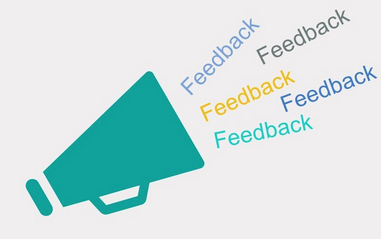What is Voice of the Customer (VoC) all about? And should a direct-to-consumer (DTC) business have a VoC Programme?
- 27 February 2023

A Voice of the Customer (VoC) programme is a method used by businesses and charitable organisations to gather and analyse feedback from their customers. The aim of a VoC programme is to understand the needs, preferences, and opinions of customers in order to improve the overall customer experience. By collecting customer feedback, companies can understand what they’re doing well as well as identify areas for improvement. The insight gathered can help organisations to develop new products and services based on gaps in the market identified by understanding customer needs and create stronger relationships with their customers. A VoC programme helps both the organisation and the customer – as customers know that they’re being listened to.
Voice of the Customer (VoC) programmes are becoming increasingly popular in the world of direct-to-consumer (DTC) businesses. These programmes allow companies to listen to and understand the needs and preferences of their customers, which can provide valuable insights for improving business operations and driving growth. If you’re thinking of setting up a VoC, it’s worth understanding both the benefits you’ll gain and effort you’ll be required to put in to set up the programme and to maintain it. In this blog we’ll look at the benefits. Next week we’ll tackle how to set up a VoC.
So, what are the benefits of implementing a VoC programme for DTC businesses? The first key benefit of a VoC programme is that it provides a direct line of communication between the business and its many customers. This enables companies to understand what their customers are looking for, what they like and dislike about their products and services, and what they would change if given the opportunity. By gathering this insight, DTC businesses can make informed decisions about product development, marketing strategies, and overall customer experience. A study by Qualtrics found that companies that prioritise customer feedback experience an average revenue growth of 15.8% compared to companies that don't. It’s clear that listening to customer feedback can drive business growth.
Another benefit of a VoC programme is that it helps to build customer loyalty and retention. A study by CustomerThink found that companies that actively engage with their customers through VoC programmes are more likely to improve customer satisfaction and reduce customer attrition.
By actively engaging with customers and demonstrating a commitment to meeting their needs, DTC businesses can create a positive brand reputation and foster customer advocacy. Additionally, when customers feel that their feedback is valued and taken into consideration, they are more likely to continue using the products and services offered by the company. It’s when this happens that customers believe that they have a relationship with a company and the business isn’t simply a supplier. A study by the Temkin Group found that companies with strong VoC programmes are more likely to have customers who are loyal and willing to recommend their products and services to others.
A VoC programme can also inform business decision-making by identifying areas for improvement. For example, if a large number of customers are complaining about a particular aspect of a product or service, a VoC programme can provide valuable insights into how the business can address these issues. Customer feedback will not identify the operational solutions which will come from the internal teams. Your customers are looking from the ‘outside in’ and will explain what they want / need to see. Listening to customer feedback and understanding the customers’ perspective, rather than trying to solve the problem only from the internal viewpoint, can help DTC businesses to avoid costly mistakes and make data-driven decisions that drive business growth. We recommend including the quantitative data from customer touchpoints along the stages of a planned customer journey. Here you’ll be looking at whether customers completed each step or not. According to a study by Forbes, companies that gather customer feedback through VoC programmes are able to use that information to inform their product development strategies and create products that better meet the needs and preferences of their target audience.
Finally, a VoC programme can be an effective tool for marketing and customer acquisition. A study by Gartner found that companies that prioritise customer feedback and use it to inform their marketing efforts are more likely to acquire new customers and drive business growth. By gathering these insights into customer preferences and opinions, DTC businesses can better target their marketing efforts and create more effective messaging that resonates with their target audience, pulling out the benefits of a product or service most prized by actual customers. Additionally, by building a positive brand reputation and fostering customer advocacy, a VoC programme can help to drive word-of-mouth referrals and attract new customers.
In summary, a Voice of the Customer programme can provide numerous benefits for direct-to-consumer businesses. From gathering valuable insights into customer needs and preferences, to building customer loyalty and driving business growth, a VoC programme is an effective tool for any DTC business looking to improve and succeed in today's competitive marketplace.
If you think that a VoC programme would be valuable to your business or organisation and would like to find out more about how our friendly experts can work with your teams to design and set-up your solution, then please




